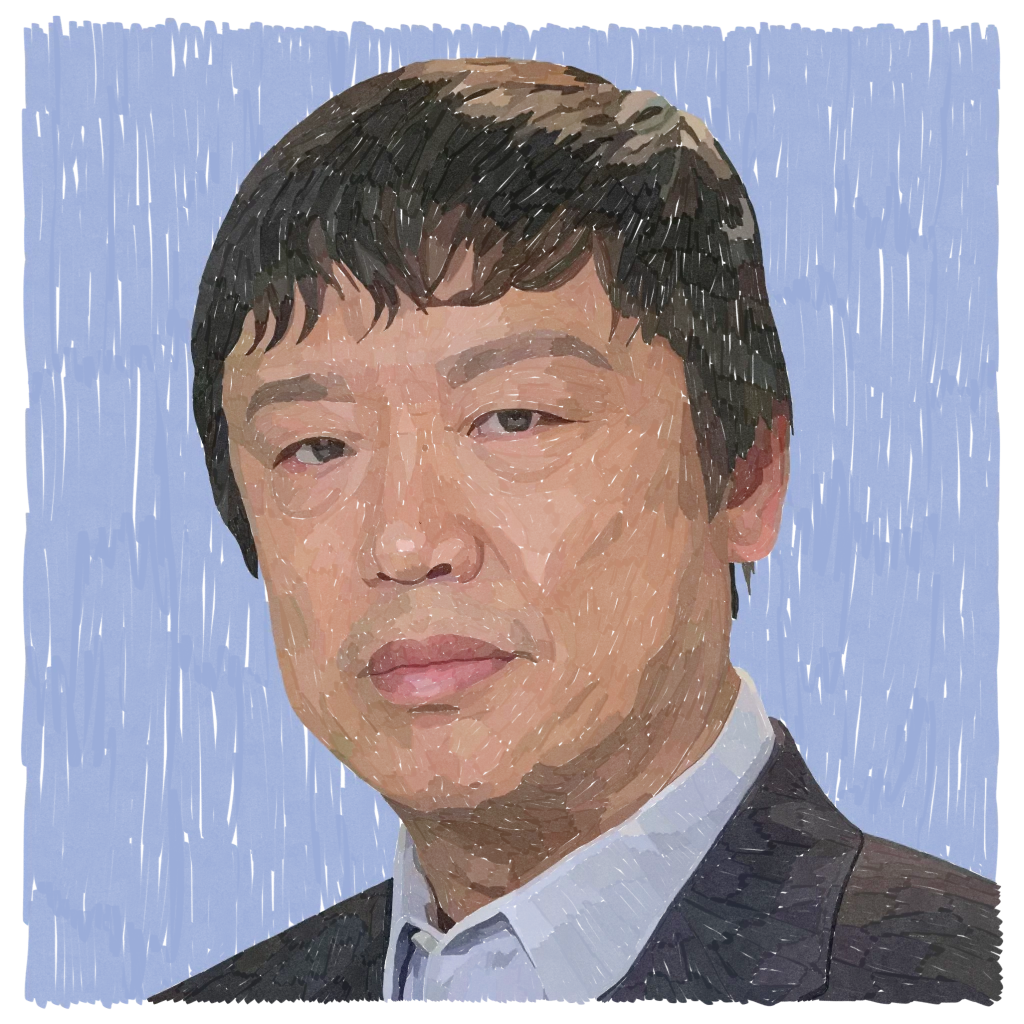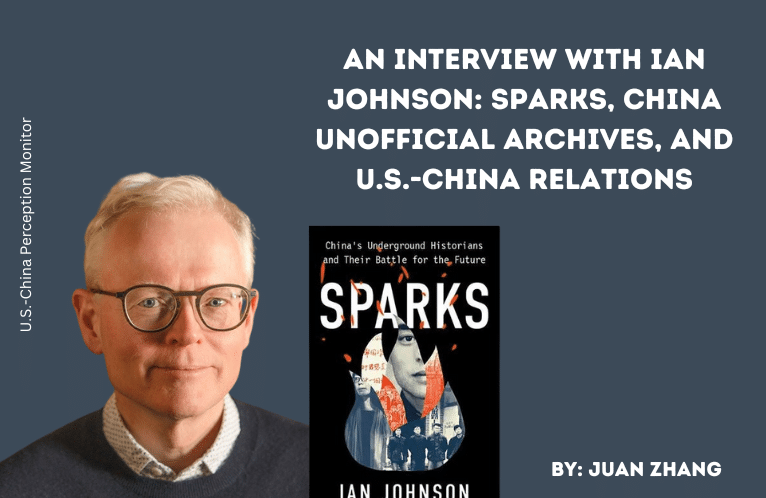When Will China Use Force to Reunite with Taiwan? Hu Xijin Explains His Position
USCNPM: An Interview with Dr. Douglas Paal
Dr. Paal is a distinguished fellow at the Carnegie Endowment for International Peace. He previously served as vice chairman of JPMorgan Chase International and as unofficial U.S. representative to Taiwan as director of the American Institute in Taiwan.
Interview conducted by Juan Zhang and transcribed by Rob La Terza
1. There is some encouraging news on the trade talks. Do you get a sense that the administration wants to find a way to seal the trade deal before the election?
Yes, I do. I think that the administration has a couple of requirements that are related to the election and are impelling it to reach a partial trade deal with China, and I think a partial trade deal is also beneficial for China.
The Trump administration’s first priority is to ensure the markets do not react negatively to a failure to reach a trade deal. Therefore, they are trying to keep the stock market high so when President Trump campaigns for reelection he can point to his successful management of the stock markets, low unemployment, deregulation and other issues as successes of his administration.
Secondly, I think the administration needs to make sure that the interests hurt by the tariffs, especially agriculture interests, get some relief. The soybean, corn, and pork industries would all like to resume high sales to China. Trump needed the support of those farmers to win the last election in 2016 and he will need them again in 2020.
It should be noted that for President Trump, a partial agreement is better than a complete agreement. A complete agreement would be more difficult to sell politically in the US. The opposition party will always say that the US compromised too much, no matter what compromises were made. It’s easier to have a partial agreement that meets some of the US’ needs but allows Trump to continue attacking China for its domestic trade and investment practices for political gain.
2. Vice President Pence recently gave a speech at the Wilson Center in which he criticized China while calling for greater engagement between the two countries. What’s your take on his latest speech, compared to his speech at the Hudson Institute last year?
I think that the difference this time is that Pence needed to justify a partial agreement with China on trade by mentioning the need for engagement and by saying that the administration is not going to seek conflict, confrontation, or excessive competition. This part of the speech was written to send China positive signals. The rest of the speech strongly condemned China on human rights, Hong Kong and elsewhere, to show voters that Trump is still suspicious of China and is being tough on China, boosting his reelection chances.
3. The New York Times recently reported that “The Trump administration is divided over how aggressively to restrict China’s access to United States technology,” and that “President Trump and many of his top advisers have identified China’s technological ambitions as a national security threat and want to limit the type of American technology that can be sold overseas”.
Back in March, POLITICO reported that “House Republicans are rolling out legislation that would force the Education Department to monitor “sensitive” research projects at universities to guard against spying. The primary target of this bill is China.
Coupled with the FBI Director’s comments on profiling Chinese American scientists and students, is the U.S. experiencing a period of technological McCarthyism? Are you aware of any counter-efforts by DC think tank China experts and policy-makers in this regard?
There has been a strong escalation in efforts to treat China as a technological competitor and a country eager to steal American advantages in science and technology for domestic economic benefit and strategic advantage over the US. This is a pervasive theme in US public discussion, especially from Congress and parts of the Trump administration. Interestingly, Trump himself does not seem to share the same level of concern. It’s mostly expressed below his level by people at Cabinet and sub-Cabinet levels.
In June, over 100 think tank and university China experts wrote a letter acknowledging there are problems with China’s behavior that should be dealt with but urging the Trump administration to take a more flexible stance and not to close our universities and think tanks to Chinese scholars in reaction to what China has done. They suspect that we could easily move to a new kind of McCarthyist period, an outcome that must be avoided. Many university presidents have made the same point. While on one hand they’re under pressure to eliminate the Confucius Institutes, among other things, on the other side they want to leave the doors open for Chinese students to come to the US. I think you see a reaction both from China and the Americans that I’ve just mentioned in an op-ed article given by US Ambassador Branstad this week to university students saying that the US still welcomes them to come to study and to research in American universities.
One follow-up question: You mentioned Trump is not very keen on this issue- do you have any thoughts on why he’s not interested?
I think Trump’s interests are largely confined to trade, jobs, and trade deficits. He doesn’t tend to think in terms of broader issues. He’s got a narrow focus- his administration has many more hawks and hawkish people than Trump himself.
4. You recently delivered a speech at the International Media Forum co-hosted by PKU and Global Times Foundation. You talked about how media shaped US-China relations. When U.S. media reports on China, what should they be mindful of and in what area could they improve?
I’m reluctant to be critical of the US media because media reporting in China are under such severe constraints that they become preoccupied with those constraints and they tend to see negative things everywhere they turn. Current examples of that would be Tibet and Xinjiang where they have consistently been very critical, partly because they aren’t allowed access, or they only get controlled access. When they find that people are unwilling to talk to them in Chinese universities or Chinese government offices, they grow frustrated, and their frustration shows through in their reporting. I think China should do a better job of making its atmosphere more welcome to foreign media if China wants to enjoy welcome access in overseas media environments.
5. It’s been some years since China’s major media outlets established their presence in the United States, especially in New York City and Washington DC. What grade would you give them in terms of helping China communicate with the U.S.?
I would answer with two observations. First, American impressions about China generated from Chinese media are insignificant. The audience share for Chinese media in American cable TV is tiny and only a dedicated few follow what Chinese media have to say about the US or about China-US relations.
The second observation is that some of the individuals involved in this exercise are quite impressive. Some past reporters for China Daily, Chinese TV reporters, and Weibo commentators have impressive understandings of the US and equally impressive abilities to describe Chinese views about what the US is doing or not doing. However, they are unable to publicly share their insights because of the constraints on Chinese media.
6. President George H.W. Bush, hailed by many in the US as one of the greatest foreign policy thinkers to serve as President, passed away this year. He worked with then Chinese leader Deng Xiaoping to right the course of U.S.-China relations after a huge deterioration. You worked for the George H.W. Bush administration for several years. What reflection of Bush 41’s handling of U.S.-China relations struck you the most?
The Bush 41 period was one of general deterioration of the relationship due to events in China, but the most memorable part was President Bush’s determination not to throw the baby out with the bathwater. He wanted to make sure we protected those elements of the US-China relationship that were enduring and of long-lasting value, and he never wavered in that commitment, even though after the events of 1989 the political atmosphere in the US was such that sustaining US-China relations was a losing proposition. Every day, Bush lost ground in terms of budgets or policy flexibility because of the general hostility toward China that emerged at the time. An important point not specific to China is that the end of the Cold War gave most Americans a reason to turn away from international responsibilities. The kind of Cold War personality that President Bush represented was not as attractive to people as promises for better domestic life and a chance to shed the burden of fighting the Cold War. Much of President Bush’s personality was not as welcome in that atmosphere as it was during the Cold War years.
7. You’ve been working on promoting U.S.-China relations for many years. There have been ups and downs in this relationship. What gives you the confidence to keep working towards improving the relationship?
Well, some people in the US would say there have been no successes and numerous failures in US-China relations; but I think that reflects their lack of desire to look at the details of the changes in China’s behavior over the years. Whether it’s the opportunities opened to the people of China to study, to work, or to marry, China has made significant progress. The freedoms available to Chinese people are less than we have in the US, but they’re much greater than the freedoms or lack thereof ordinary Chinese citizens experienced in the postwar years. Secondly, Chinese international behavior has become more consequential, more restrained, and more constructive. In some areas the US disagrees or has sharp frictions with China, but in other areas we’ve been able to get things done that are in our common interests. We need to recognize the issues we still need to work on but also reflect positively on the two countries’ diplomatic successes.
This transcript has been edited for brevity and clarity by Rob La Terza at The Carter Center.









